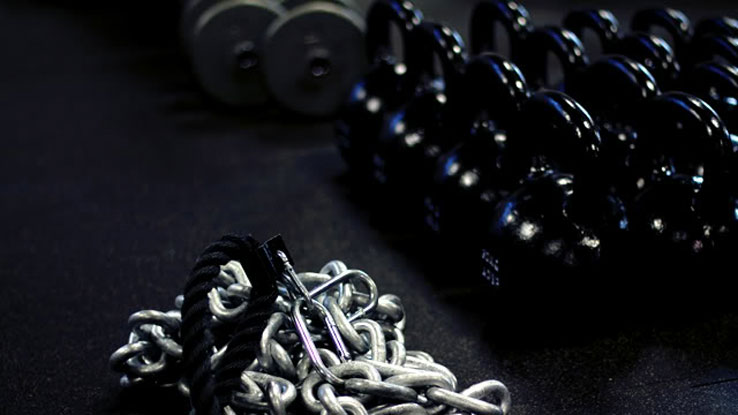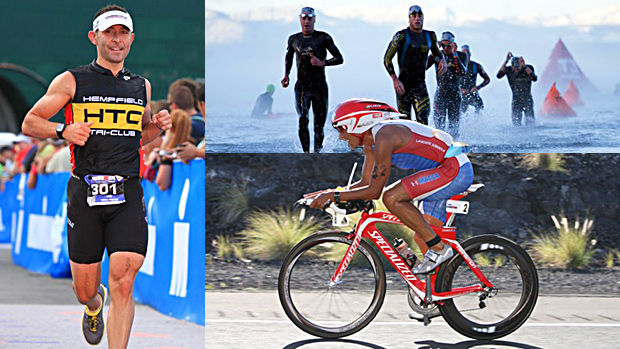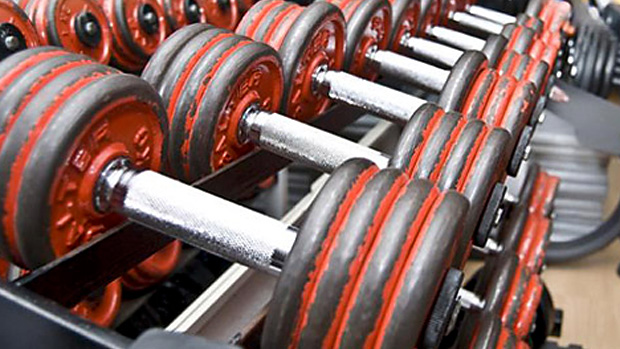Recently TC sent me an e-mail asking for an article detailing how and why I train.
It wasn't an easy write. Self-reflection, it seems, isn't always a walk in the park.
Background

When I first started seriously lifting weights, my goals were straightforward. I was coming off a major back surgery where I'd dropped from 163 pounds down to 122 and, not surprisingly, I felt and looked terrible.
I wanted to strengthen my back and put back on the weight I'd lost. I didn't particularly enjoy lifting weights but saw it as a necessary evil to get bigger and stronger, so I did what I always do when I try something new: I dove in head first.
I'm an all-or-nothing guy. I can't stand half-assing things.
Probably the best life advice I've ever gotten came from my good buddy's dad who recently passed away. Back in high school I was bitching about having to do something I didn't want to do and he pulled me aside and told me something I'll never forget:
If you have to eat shit, don't nibble.
That's exactly the approach I took to lifting.
I've made a lot of mistakes along the way and it continues to be a learning process, but one thing I can say with the utmost confidence is that I've always tried my absolute best right from day one. Any mistakes I've made sure haven't been from lack of effort, and if anything have probably come from trying too hard, which at the end of the day I can live with.
Rehab Roots
My biggest goal initially was to get rid of my back pain because it was essentially ruining my life.
I was told core strength was the key to feeling better so I began training the core like crazy, doing every exercise imaginable for hours on end. I didn't really know which exercises were best so I did them all, just to be safe. And lots of them.
Then I heard spinal stability was the ticket so I started planking like a banshee. I wouldn't be surprised if I spent more time in a side plank during 2006 than any other human being on the planet.
Talk about boring.
Lo and behold though, I started feeling better. Once that happened, I transitioned out of rehab patient mode and shifted my focus to getting "jacked."
Weighing about 145 pounds soaking wet at the time, I figured "jacked" was probably about 165 pounds. Little did I know what I was in for.
Down with the Dog

I spun my wheels for a little while using volume routines out of the magazines before stumbling across the work of Dante Trudel, creator of DC Training, which I still believe to be one of the best programs around for building muscle.
DC Training really resonated with me. Reflecting back now, it's pretty basic stuff, but that's exactly what makes it so effective. Pick a few key compound exercises that work best for your body and attack them with reckless abandon, pushing yourself hard and keeping a logbook to chart progress. Rinse and repeat. I like simple.
I'm the type of person that likes to put my own spin on things so I never followed Dante's program exactly as he laid it out, but I definitely internalized his principles and still use them today to guide me.
If you want more specifics, here's the basic template I followed for almost four years.
I got a lot bigger and stronger training in that fashion, but more importantly, it made training fun. I enjoy pushing myself to my limits. Volume training certainly works, but to me it feels like a whole lot of foreplay with no real climax, like the training equivalent of blue balls. High intensity training is more my speed: all fun, no fluff.
Now
Why I train now is completely different from why I used to train.
Getting bigger is no longer a priority. I've hovered between 178-185 pounds for the past three years or so and have no intention of going much over that. I realize that's small by internet standards where everyone's 250 pounds at 2% bodyfat, but I'm content where I am.
I've never been after the bodybuilder look. I guess if I had to tell you my ideal physique, it'd be a gymnast (just with bigger legs). Truth be told, I feel my best when I'm around 170, but every time I drop weight my lifts take a dive and I freak out and gain some weight back.
At this stage I want to get as strong as I can at my current size. I realize that this makes strength gains a lot harder to come by, but I'm okay with that.
My reasons for training are far more mental than just physical. I still want to get stronger and fight tooth and nail every day to do so, but it's not because I really care how much weight I can lift. I don't compete in any strength sports so the numbers really don't matter. What matters to me is that I'm always striving to get better.
I've become much more process oriented and much less results oriented, which is extremely important for long-term success. If you live and die by your numbers alone, you're bound to get discouraged when you hit plateaus, which are inevitable the longer you keep at it.
Training used to be a means to an end but it's morphed into an end in itself. I train for the sake of training.
I just feel so much better about life. In a lot of ways, the iron is my therapist.
It clears my head, relieves stress, gets rid of pent-up anger and aggression, and almost instantly puts me in a better mood regardless of what's going on in my life outside of the gym. It's very rare to find me in the gym without a smile on my face. The gym is my "happy place."
I might honestly have a mild addiction, but it's an addiction I intend to maintain for as long as I can.
The Principles

I've made some slight but important changes to my training to ensure that I stay healthy so I can continue making progress for years to come.
My basic training principles are still very similar. I prefer to pick a few exercises and really hammer them hard as opposed to doing a bunch of different exercises. I actually do even less now than I used to. A typical workout is 2-3 exercises, maybe four if I'm feeling frisky. I usually plan on three exercises and then adjust on the fly based on how I'm feeling.
I'll usually do 4-6 sets of each exercise staying in moderate rep ranges of 5-10 or so. Every so often I'll drop down and crush some really heavy weight or do a high-rep burnout set at the end of my workout just for kicks, but I find moderate reps to be my sweet spot to still get stronger and build muscle without beating myself up too much.
I alternate between total body training (as outlined here) and an upper/lower split, usually switching back and forth every three months or so. I resisted total body training for a while but the more I try it, the more I like it. When I'm doing full body workouts I'll lift 3-4 days a week, and when I'm using an upper/lower split I'll go 4-5 days a week depending on my schedule.
Time abiding, I try to end most workouts with some form of conditioning work, either heavy sled drags or something on the Airdyne bike (aka my nemesis).
I also still strongly believe in keeping a logbook. In fact, if you only take one thing away from this entire article, I hope it's this because it's the single most important thing you can do for yourself. I don't even care what program you do – as long as you're beating your logbook using mostly compound exercises, you're probably on the right track. I've developed a love/hate relationship with my logbook, heavier on the hate. That's what you want.
One big change I've made is that I now only train to technical failure as opposed to complete and utter failure. I used to take my sets deep into failure, letting my form slip quite a bit along the way. I have this uncanny ability to block out anything and everything during my sets, including pain. I've gotten nosebleeds, coughed blood, you name it (oddly though, I've never puked). I'd literally just shut my brain off and go until I couldn't move the weight anymore. It may sound crazy, but I loved training that way because it allowed me to test my mettle on a regular basis.
That being said, it's definitely not the smartest way to train if your goal is to stay healthy for the long haul. I accrued a bunch of minor injuries by getting greedy and trying for that one last rep when I should've put my ego aside and packed it in.
Training in that manner would also leave me brutally sore for days. Back when I was in school, that wasn't so much of a problem because all I had to do outside of my workouts was sit around and study, but now that I'm on my feet coaching and demonstrating exercises all day, I can't afford to be hobbling around like I just got my ass kicked.
I still push myself extremely hard, but now I terminate the set when I know I won't be able to get another rep with good form. When in doubt I end it early. Live to fight another day.
The other big change I've made is in regard to exercise selection. I used to base my lower body work primarily around the deadlift and squat (front squat actually). I love those exercises and if I had my druthers they'd still be the cornerstones of my program, but I started to find that as I got stronger at them, I began to break down.
It's one thing when you're deadlifting 315 and front squatting 185, but once I got up to deadlifting over three times my bodyweight and front squatting twice my bodyweight I could no longer justify it given my injury history, no matter how much I liked them. Those that haven't experienced a serious back problem may not understand this logic, but if you have, then you know exactly where I'm coming from.
I now use a lot of single-leg squatting and lunging variations to replace squats along with single-leg deadlifts, glute-ham raises, and bridges to replace deadlifts. If I get the urge to squat or deadlift, I do it at the end of the workout for higher reps so I don't need to use as much weight. An example of how I structure my lower body sessions can be found here.
I think everyone should learn how to squat and deadlift extremely well when starting out, but I don't think everyone is meant to load them extremely heavy. Let common sense be your guide on that one.
Find compound exercises that allow you to push hard without pain and make them your bitch and you'll be all set.
Nutrition

My basic nutritional template is as follows:
• I base my diet around healthy foods that I enjoy so it isn't a struggle to follow. Life is too short to be worrying about food all the time.
• 4-5 meals a day.
• Protein at every meal. Protein sources include chicken, turkey, eggs, fish, and chocolate Metabolic Drive® Low Carb. I also love (rare) steak and eat it every chance I get when I'm out, but I don't eat it at home because I don't have a grill and steak cooked on a frying pan just sucks.
• Carbs earlier in the day. I lift in the morning, so I'll have carbs for breakfast before my workout and then in the next few meals afterwards. I eat fewer carbs on days I don't work out but I still have them in the first couple meals of the day. Carb sources include quinoa (the kind that looks like oatmeal but tastes way better), rice, potatoes, black beans, and fruit.
• Lots of healthy fats later in the day. These include nuts, eggs, and my absolute favorite, avocados.
• Eat vegetables and/or fruit with every meal.
• I've never counted calories but I'm a creature of habit and eat a lot of the same things every day so it's very easy to make adjustments. I lower my carbs slightly if I'm trying to lose weight or increase them if I'm trying to gain weight. Everything else stays pretty much the same.
• I don't keep any junk food in my place (which I highly recommend), but I do enjoy some treats when I'm out with friends. I'm not that anal.
I call it a nutritional template as opposed to a diet because it's really not that rigid. I suppose I should really just call it sensible eating.
I've tried other diets but this is what I always go back to because it allows me to feel good and maintain a body composition I'm comfortable with without feeling deprived and having food run my life. That's really the key in my mind. Find something you can sustain and roll with it.
Supplements
I honestly don't know a whole lot about supplements so I really just defer to those that do. If enough people that I trust and respect recommend something and it seems safe, I'll try it.
With that in mind, I like Flameout™, Glucosamine, Curcumin, ZMA®, and BCAA Structured Peptides.
I'm a lightweight when it comes to stimulants, so except for the occasional cup of coffee, I avoid pre-workout stimulants.
For me, the best way to ensure a good workout is to get a good night's sleep the night before. Since that's not always possible, a close second is splashing some ice cold water on my face and blaring some loud hip hop in my car on my way to the gym.
Conclusion
I didn't include my actual training program because that's really not the point of this article. I want to get you thinking about how to start creating your own program based on your individual goals and needs.
In order to do that though, you first need to know what your goals and needs are. I can't give you that answer. They may be completely different from mine, and that's fine. I don't think there's a universal "best" program out there and you've got to find what it is that makes you tick.
To do that, take some time and do something similar to what I just did. Write out why you train and what your main goals are. Then ask yourself if your current program is in line with those goals. If the answer is yes, give yourself a pat on the back and carry on as you are. If the answer is no, then you've got some work to do.
I tried my best to outline what I do and why I do it, but if something wasn't clear or you'd like me to expand, just let me know in the Livespill below.





